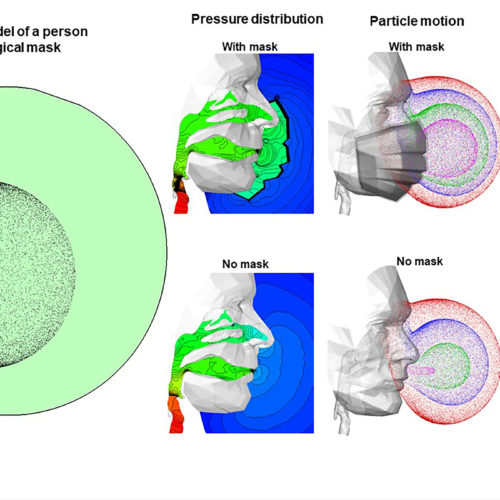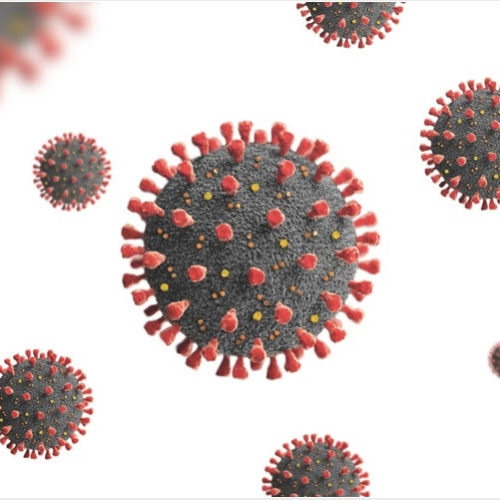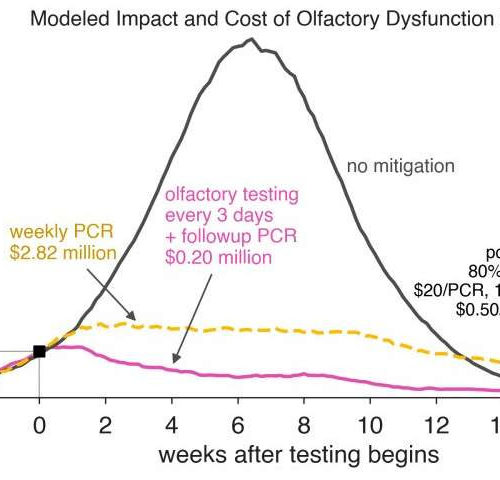New research led by the Institute for Optimum Nutrition in Twickenham suggests intravenous vitamin C may ameliorate symptoms of COVID-19 infection. Researchers carried out a literature review that focuses on vitamin C deficiency in respiratory infections, including COVID-19, and the mechanisms of action in infectious disease, including support of the stress response, its role in preventing...
Tag: <span>COVID-19</span>
Stroke and altered mental state increase risk of death for COVID-19 patients
by Albert Einstein College of Medicine Credit: CC0 Public Domain People hospitalized with COVID-19 and neurological problems including stroke and confusion, have a higher risk of dying than other COVID-19 patients, according to a study published online today by researchers at Montefiore Health System and Albert Einstein College of Medicine in the journal Neurology, the medical journal...
Not all masks protect the same: Research suggests no mask better than an old mask
By Sarah Moore Dec 15 2020Reviewed by Emily Henderson, B.Sc. Scientists have used a computational model to further our knowledge of how face masks impact airflow. In a new study, published this month in the journal Physics of Fluids, from the American Institute of Physics, a team of scientists from the University of Massachusetts Lowell and California...
No association between COVID-19 and Guillain-Barré syndrome: study
by University College London 3D print of a spike protein of SARS-CoV-2, the virus that causes COVID-19–in front of a 3D print of a SARS-CoV-2 virus particle. The spike protein (foreground) enables the virus to enter and infect human cells. On the virus model, the virus surface (blue) is covered with spike proteins (red) that enable...
Ivermectin in Adults With Severe COVID-19
Since the onset of the disease, more than 40.5 million people have been diagnosed with COVID-19 and nearly 1.2 million people have died (October 21, 2020). There is no complete understanding of the pathogenesis of SARS-CoV-2 infection and to this day there is no specific therapy or vaccine available. Thus, patient care is based on...
Could existing drugs be used against COVID-19?
by University of Montreal Credit: CC0 Public Domain Several drugs already approved by the U.S. Food and Drug Administration (FDA) could potentially be used to alleviate the symptoms of COVID-19, biomedical researchers at Université de Montréal have found. The team—led by doctoral student Nehme El-Hachem, working under the supervision of UdeM pharmcology associate professor Moutih Rafei in collaboration...
Could neurological complications be common even in mild COVID-19?
Interview conducted by Emily Henderson, B.Sc., Dec 18 2020 Thought Leaders Dr. Pria Anand, Chief, Division of Hospitalist Neurology, Boston University School of Medicine News-Medical talks to Dr. Pria Anand about her research into COVID-19 that suggests neurologic complications are common even in mild infections. What led to your research into COVID-19 and its complications?...
5 THINGS TO KNOW ABOUT THE FDA’S COVID-19 VACCINE AUTHORIZATION
The agency is holding another meeting December 17th to determine whether they will issue one for the vaccine candidate from Moderna. EUAs will allow some members of the American public—not just those enrolled in clinical trials—to begin receiving the vaccines. But an EUA is not the same as traditional FDA approval. What exactly is an EUA,...
COVID-19: persistent symptoms in one third of cases
UNIVERSITÉ DE GENÈVE Since its appearance in early 2020, COVID-19 has been unpredictable for both physicians and affected individuals given the variety and duration of its symptoms. Notably, it appears to have the potential to cause an unusually long-lasting illness, and the term “long COVID” describes the disease in people who continue to report symptoms...
How a simple smell test could curb COVID-19 and help reopen the economy
by Lisa Marshall, University of Colorado at Boulder Credit: Dan Larremore A simple, scratch-and-sniff test could play a key role in curbing the spread of COVID-19, at a fraction of the cost of high-tech tests that are difficult to scale and take longer to return results, new CU Boulder research suggests. “A lot of people have...





